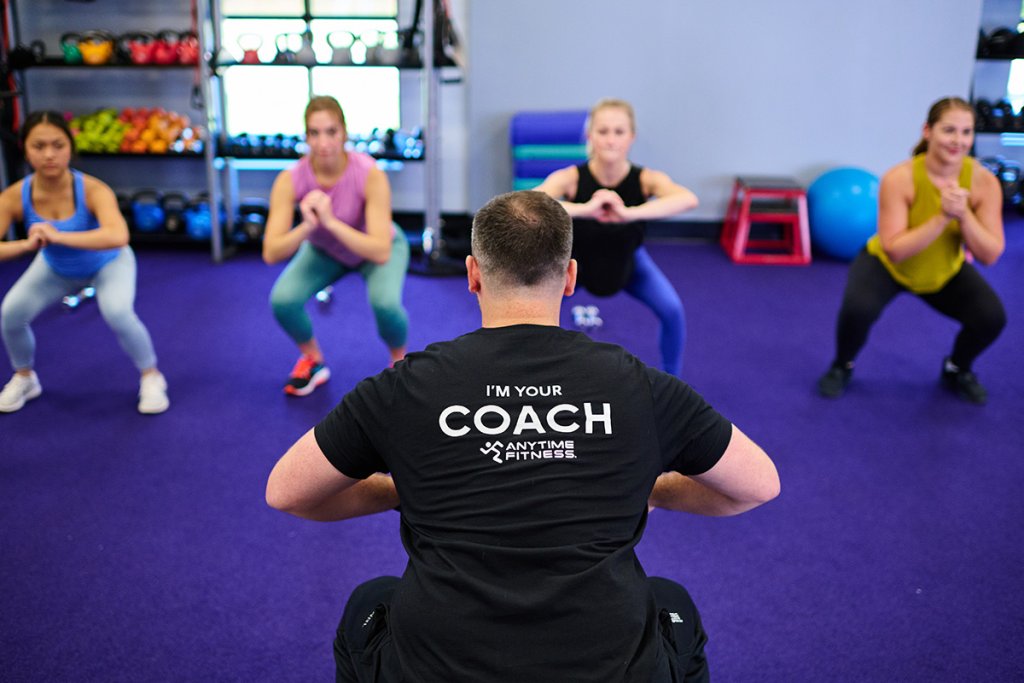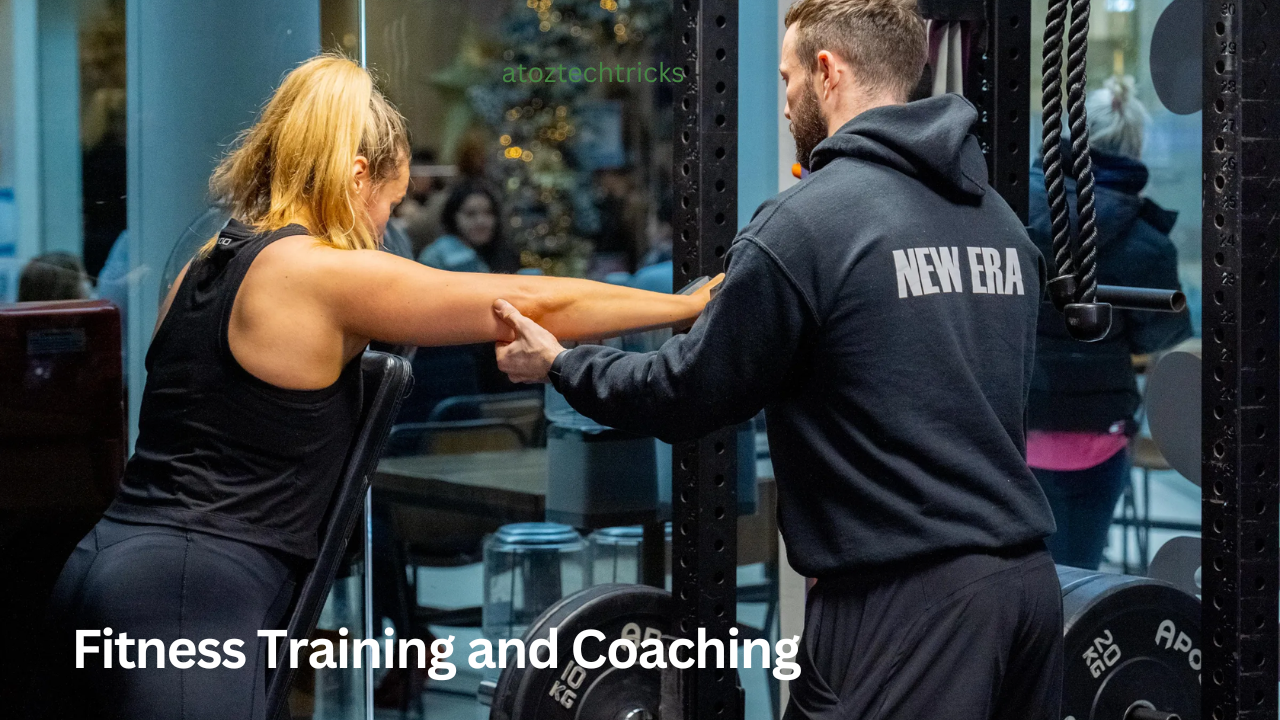Fitness Training and Coaching: A Comprehensive Guide to Achieving Your Goals
In today’s health-conscious world, fitness training and coaching have become essential components of a healthy lifestyle. Whether you’re a beginner aiming to lose weight, an athlete looking to enhance performance, or someone striving to improve overall well-being, fitness training and coaching can help you achieve your goals. This comprehensive guide explores the various aspects of fitness training and coaching, offering insights into the different types of training, the benefits of working with a coach, and tips for finding the right program for your needs.
Understanding Fitness Training
Fitness training refers to the structured and planned activities aimed at improving physical fitness levels. It encompasses a wide range of exercises and practices designed to enhance various aspects of health, including cardiovascular endurance, muscular strength, flexibility, and body composition. Here are the key components of fitness training:
1. Cardiovascular Training
Cardiovascular training, often referred to as aerobic exercise, focuses on improving the efficiency of the cardiovascular system. Activities like running, cycling, swimming, and rowing are examples of exercises that increase heart rate, promote circulation, and boost stamina. Regular cardiovascular training reduces the risk of chronic diseases like heart disease and diabetes, while also aiding in weight management.
2. Strength Training
Strength training involves exercises that target muscle growth and strength development. Using weights, resistance bands, or bodyweight exercises, strength training improves muscle mass, bone density, and metabolism. It’s essential for building a strong, resilient body, and helps in maintaining muscle mass as we age.
Health and Wellness Business Ideas: A Pathway to Profitable Ventures and Positive Impact
3. Flexibility and Mobility Training
Flexibility and mobility training focuses on improving the range of motion of the joints and muscles. Activities like yoga, Pilates, and stretching exercises enhance flexibility, reduce the risk of injuries, and improve posture. Mobility exercises, often included in warm-ups, are vital for maintaining joint health and functional movement patterns.
4. Functional Training
Functional training emphasizes exercises that mimic everyday movements, making it easier to perform daily tasks. This type of training improves balance, coordination, and strength through exercises like squats, lunges, and kettlebell swings. Functional training is particularly beneficial for older adults and those recovering from injuries.
5. High-Intensity Interval Training (HIIT)
HIIT involves short bursts of intense exercise followed by periods of rest or low-intensity exercise. This type of training is highly effective for burning fat, improving cardiovascular fitness, and building endurance. HIIT workouts can be adapted to various fitness levels and can be performed in a relatively short time.

The Role of a Fitness Coach
A fitness coach is a professional who guides individuals through their fitness journey, providing personalized training plans, motivation, and support. The role of a fitness coach extends beyond just teaching exercises; it involves understanding the client’s goals, monitoring progress, and making adjustments to ensure success. Here’s how a fitness coach can help you:
1. Personalized Training Plans
One of the main benefits of working with a fitness coach is the creation of a personalized training plan tailored to your specific goals, fitness level, and physical limitations. Whether you’re aiming to lose weight, gain muscle, or train for a marathon, a coach can design a program that aligns with your objectives.
2. Motivation and Accountability
Staying motivated can be challenging, especially when progress is slow or obstacles arise. A fitness coach provides the encouragement needed to keep you on track. They hold you accountable for your workouts, ensuring that you remain committed to your fitness goals.
3. Expertise and Guidance
Fitness coaches possess the knowledge and expertise to guide you through your fitness journey safely and effectively. They teach proper exercise techniques, help prevent injuries, and provide advice on nutrition and recovery. Their expertise ensures that you’re getting the most out of your workouts.
4. Progress Tracking and Adjustments
A fitness coach regularly monitors your progress and makes necessary adjustments to your training plan. This continuous evaluation ensures that your workouts remain challenging and effective, helping you overcome plateaus and achieve consistent results.
5. Support for Mental and Emotional Well-being
Fitness coaches also play a crucial role in supporting the mental and emotional aspects of fitness. They help build confidence, manage stress, and foster a positive mindset, all of which are essential for long-term fitness success.
Upcycling and Repurposing Business: Transforming Waste into Wealth
Types of Fitness Coaching
Fitness coaching comes in various forms, each catering to different needs and preferences. Understanding the different types of coaching available can help you choose the right one for your goals:
1. Personal Training
Personal training involves one-on-one sessions with a fitness coach who provides individualized attention and guidance. Personal trainers work closely with clients to develop customized workout plans, monitor progress, and make real-time adjustments. This type of coaching is ideal for those who prefer a personalized approach and direct interaction with a coach.
2. Online Coaching
Online coaching has gained popularity in recent years, offering flexibility and convenience. Online coaches provide training plans, nutrition advice, and support through digital platforms, allowing clients to work out at their own pace and schedule. This option is suitable for individuals who need guidance but prefer the freedom to exercise on their own.
3. Group Fitness Coaching
Group fitness coaching involves working out in a group setting, often led by a coach or instructor. Group classes like boot camps, spin classes, and CrossFit offer a sense of community and camaraderie, making workouts more enjoyable. This type of coaching is ideal for those who thrive in social environments and enjoy the energy of group workouts.
4. Sports-Specific Coaching
Sports-specific coaching is tailored to athletes looking to improve performance in a particular sport. Coaches focus on developing the skills, strength, and endurance required for the sport, whether it’s running, cycling, swimming, or team sports like soccer or basketball. This type of coaching is essential for athletes who want to excel in their chosen sport.
5. Corporate Fitness Coaching
Corporate fitness coaching is designed for employees within a company, promoting health and wellness in the workplace. Coaches provide on-site or online fitness programs, workshops, and challenges that encourage employees to stay active and healthy. Corporate fitness coaching can improve employee morale, productivity, and overall well-being.

Benefits of Fitness Training and Coaching
Engaging in fitness training and working with a coach offers numerous benefits that extend beyond physical health. Here are some of the key advantages:
1. Improved Physical Health
Regular fitness training leads to better physical health by reducing the risk of chronic diseases, improving cardiovascular health, enhancing muscle strength, and maintaining a healthy weight. Exercise also boosts the immune system, making the body more resilient to illnesses.
2. Enhanced Mental Health
Exercise has a profound impact on mental health, reducing symptoms of anxiety, depression, and stress. Physical activity releases endorphins, the body’s natural mood enhancers, leading to improved mood and mental clarity. Fitness training also promotes better sleep and increases energy levels.
3. Increased Confidence and Self-Esteem
Achieving fitness goals, whether it’s losing weight, building muscle, or completing a race, can significantly boost confidence and self-esteem. Working with a coach provides the support needed to overcome challenges, leading to a greater sense of accomplishment and self-worth.
4. Social Connection and Support
Group fitness coaching and classes offer a sense of community and social connection. Exercising with others who share similar goals fosters a supportive environment, making workouts more enjoyable and motivating. This social aspect can lead to lasting friendships and a strong support network.
5. Lifelong Healthy Habits
Fitness training and coaching help establish lifelong healthy habits. Coaches teach the importance of consistency, proper technique, and balanced nutrition, all of which contribute to long-term health and wellness. The lessons learned through fitness coaching can be applied to other areas of life, leading to overall well-being.
Finding the Right Fitness Coach
Choosing the right fitness coach is crucial for achieving your goals and enjoying the process. Here are some tips for finding the right coach for your needs:
1. Identify Your Goals
Before selecting a coach, it’s essential to identify your fitness goals. Are you looking to lose weight, build muscle, improve athletic performance, or enhance overall fitness? Understanding your objectives will help you find a coach who specializes in the area you want to focus on.
2. Research Credentials and Experience
Look for a coach with the proper credentials and experience. Certified fitness coaches have undergone rigorous training and have a deep understanding of exercise science, nutrition, and coaching techniques. Experience in working with clients who have similar goals to yours is also important.
3. Consider Coaching Style and Personality
The coaching style and personality of the coach should align with your preferences. Some people thrive with a coach who is motivating and high-energy, while others prefer a more laid-back and supportive approach. It’s important to find a coach whose style resonates with you.
4. Look for Reviews and Testimonials
Reviews and testimonials from previous clients can provide insight into the coach’s effectiveness and approach. Look for feedback on the coach’s ability to motivate, communicate, and deliver results. Positive reviews and word-of-mouth recommendations are strong indicators of a good coach.
5. Schedule a Consultation
Many coaches offer a free consultation or trial session. This is an opportunity to meet the coach, discuss your goals, and see if there’s a good fit. During the consultation, pay attention to how the coach listens to your needs, answers your questions, and explains their approach.
Green Energy Solutions: Paving the Way for a Sustainable Future
Tips for Success in Fitness Training
Achieving success in fitness training requires dedication, consistency, and a positive mindset. Here are some tips to help you succeed in your fitness journey:
1. Set SMART Goals
SMART goals are Specific, Measurable, Achievable, Relevant, and Time-bound. Setting clear and realistic goals provides direction and motivation. Break down your goals into smaller milestones, and celebrate your achievements along the way.
2. Stay Consistent
Consistency is key to achieving long-term results. Make exercise a regular part of your routine, and stick to your training plan, even on days when motivation is low. Remember that progress takes time, and staying consistent will lead to success.
3. Listen to Your Body
It’s important to listen to your body and recognize when you need rest. Overtraining can lead to injuries and burnout. Incorporate rest days and recovery practices like stretching, foam rolling, and adequate sleep to allow your body to heal and recharge.
4. Focus on Nutrition
Nutrition plays a crucial role in fitness. Fuel your body with a balanced diet that includes a mix of proteins, carbohydrates, fats, vitamins, and minerals. Proper nutrition supports energy levels, muscle recovery, and overall health.
5. Embrace the Process
Fitness is a journey, not a destination. Embrace the process, enjoy the small victories, and learn from the challenges. A positive mindset and a love for the journey will make the experience more fulfilling and sustainable.

Overcoming Common Challenges in Fitness Training
While fitness training offers numerous benefits, it’s not without challenges. Here are some common obstacles and strategies to overcome them:
1. Lack of Motivation
It’s normal to experience a lack of motivation at times. To overcome this, find activities you enjoy, vary your workouts, and set short-term goals to keep things interesting. Working with a coach or joining a group class can also provide the motivation you need.
2. Time Constraints
Busy schedules can make it difficult to find time for exercise. Prioritize your health by scheduling workouts like you would any other important appointment. Short, effective workouts like HIIT can be done in less time and still deliver great results.
3. Plateaus
Hitting a plateau, where progress stalls, is a common challenge. To break through, try changing your workout routine, increasing intensity, or focusing on a different aspect of fitness. A fitness coach can help you identify the cause of the plateau and create a plan to overcome it.
4. Injuries
Injuries can derail your fitness progress. Prevent injuries by using proper form, warming up before workouts, and listening to your body. If you do get injured, consult a healthcare professional and focus on rehabilitation exercises to recover safely.
5. Balancing Fitness with Life
Balancing fitness with work, family, and other responsibilities can be challenging. Create a schedule that works for you and be flexible with your workouts. Remember that even small, consistent efforts can lead to significant results over time.
The Future of Fitness Training and Coaching
The fitness industry is continuously evolving, with new trends and technologies shaping the future of fitness training and coaching. Here’s a look at what’s on the horizon:
1. Virtual and Online Training
The rise of virtual and online training is set to continue, offering more accessibility and convenience. With advancements in technology, virtual reality workouts and AI-powered coaching are becoming more prevalent, providing immersive and personalized experiences.
2. Wearable Technology
Wearable technology, such as fitness trackers and smartwatches, is revolutionizing the way we approach fitness. These devices provide real-time data on heart rate, steps, calories burned, and sleep patterns, allowing for more informed decisions about workouts and recovery.
3. Holistic Health and Wellness
The focus on holistic health and wellness is growing, with more emphasis on mental health, stress management, and overall well-being. Fitness training is becoming more integrated with practices like mindfulness, meditation, and nutrition coaching, offering a more comprehensive approach to health.
4. Sustainable Fitness Practices
Sustainability is becoming a key consideration in fitness, with an emphasis on eco-friendly practices and products. From sustainable gym equipment to outdoor workouts that connect people with nature, the future of fitness is aligned with environmental consciousness.
5. Inclusive and Adaptive Fitness
The future of fitness is more inclusive, with a focus on making fitness accessible to people of all abilities, ages, and backgrounds. Adaptive fitness programs and equipment are being developed to accommodate individuals with disabilities, ensuring that everyone can enjoy the benefits of exercise.
Sustainable Fashion and Accessories: A Guide to Conscious Consumerism
Fitness training and coaching are essential components of a healthy lifestyle, offering physical, mental, and emotional benefits. Whether you’re just starting your fitness journey or looking to take your performance to the next level, understanding the different types of training and the role of a fitness coach can help you achieve your goals. By staying consistent, setting realistic goals, and embracing the process, you can enjoy a lifetime of health and wellness. As the fitness industry continues to evolve, the future of fitness training and coaching promises even more opportunities for growth, connection, and success.




Post Comment